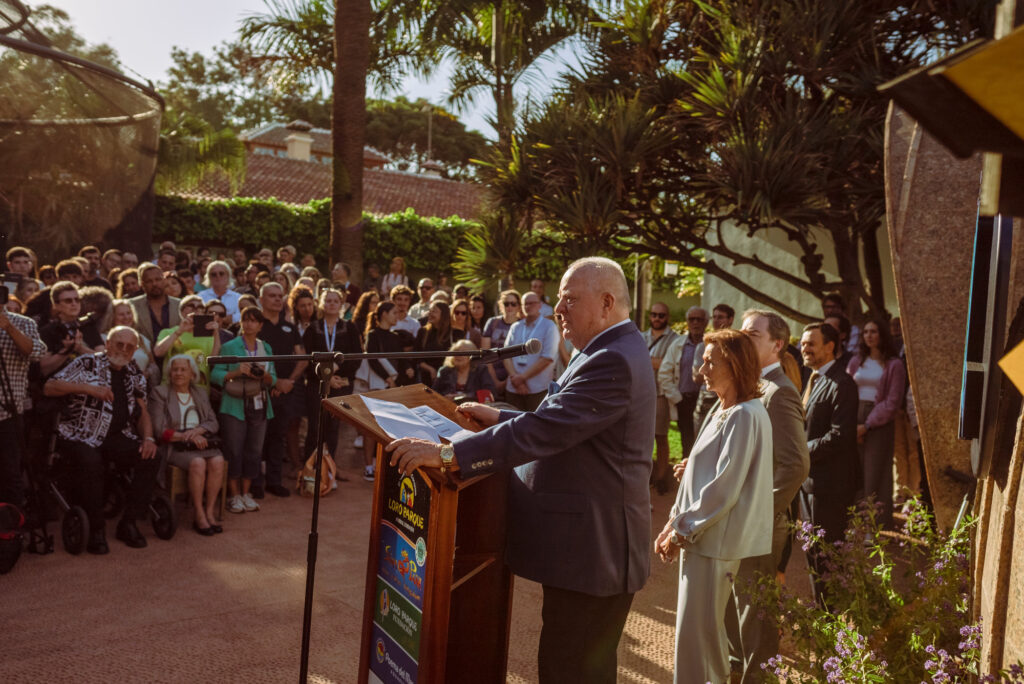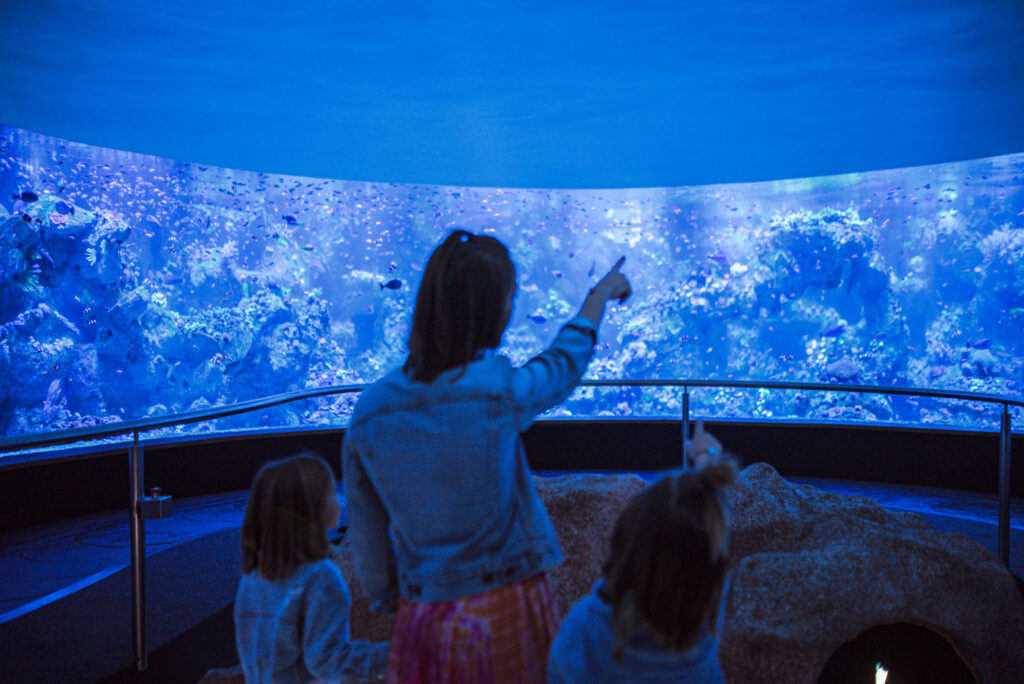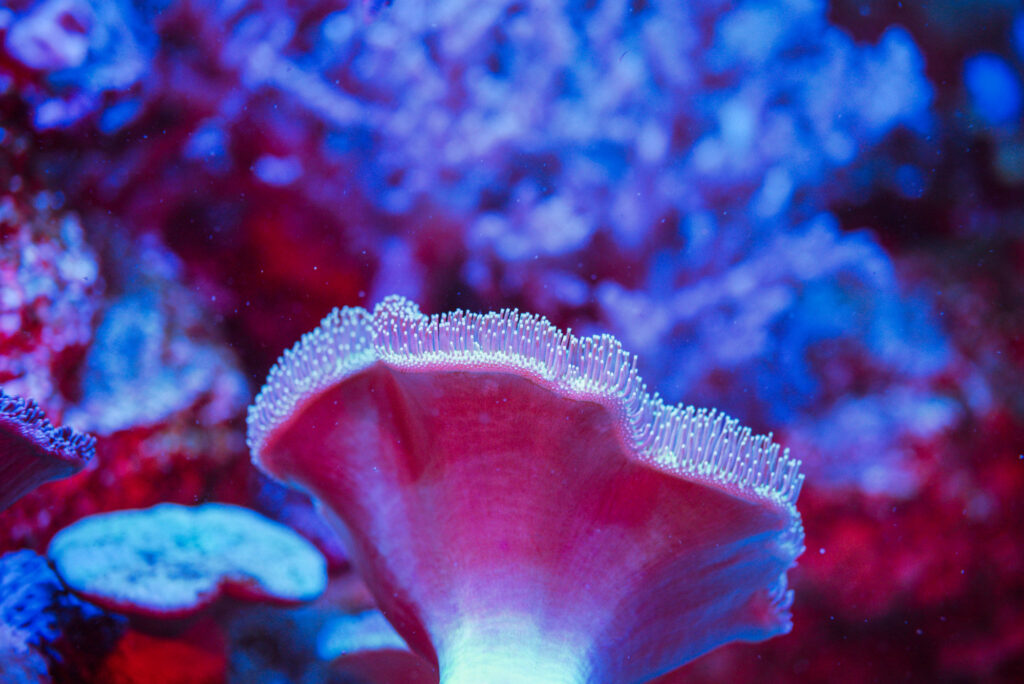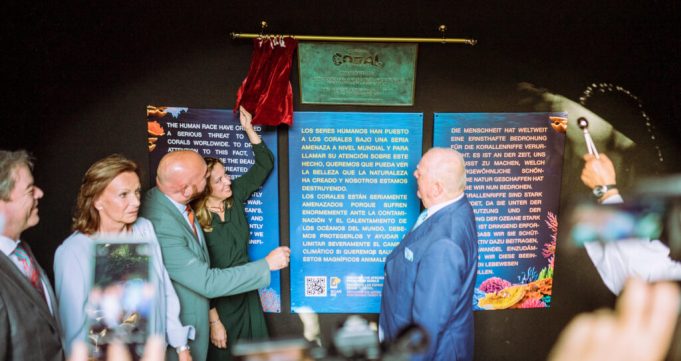The explosion of life of the complex ecosystem of the coral reef, in an immersive space that will immerse visitors in the seabed.
Loro Parque celebrated the opening of Coral Kingdom, the largest coral reef outside the oceans. The new installation combines state-of-the-art visual technology with a huge explosion of life. More than 8,000 corals and almost 10,000 fish, in over 260,000 litres of water, welcome visitors to a space that provides a unique immersive experience.
The event began with a speech by the president of Loro Parque, Wolfgang Kiessling, who warned about the critical situation of corals in nature, and highlighted the importance of this facility for their conservation. He also highlighted some of the most innovative aspects of the installation, such as its “never seen before” serpentine crystal, of almost 40 metres long.

For his part, the mayor of Puerto de la Cruz, Marco González, highlighted the importance of Loro Parque in promoting tourism in Puerto de la Cruz. “Loro Parque has positioned itself as an example of sustainability internationally, and for us it is a pleasure to have it in our municipality”, said González.
The president of the Tenerife Council, Rosa Dávila, said that the launch of Coral Kingdom is a “wake-up call” about the critical situation of the corals. “Coral Kingdom will be a space for raising awareness among the millions of visitors that Loro Parque receives every year,” he said.
The event was attended by numerous authorities, and participants of the Annual Symposium of the European Aquatic Mammal Association, which is hosted by Loro Parque, also attended the event. More than 300 guests were able to experience first-hand the unique immersive experience offered by the Coral Kingdom.

Coral Kingdom is conceived as a sensory immersion on the seabed. A journey in which the beauty of the largest reef outside the ocean unfolds in all its splendour. Loro Parque has opened the doors to this new space, where virtual reality and nature will come together to create a unique experience for visitors. This reef is also an opportunity to collaborate in the preservation of corals, which are deeply threatened with extinction.
The whole concept of this new installation is surprising and innovative. Its window, almost 40 metres long, is made up of a continuous glass of perfect transparency, with a meandering layout that helps to create a sensation of movement and fluidity in the viewer. A complexity that makes it the largest of its kind in the world.
 But the most impressive part of Coral Kingdom is the symbiosis that nature and the most innovative audiovisual technology achieve. Through 360ª projections and stunningly realistic holograms, the spectator will travel along the sandy seabed populated by creatures, with the surface waves breaking over their heads. A journey under the sea where the colour and beauty of the reef create a wonderful and unique world.
But the most impressive part of Coral Kingdom is the symbiosis that nature and the most innovative audiovisual technology achieve. Through 360ª projections and stunningly realistic holograms, the spectator will travel along the sandy seabed populated by creatures, with the surface waves breaking over their heads. A journey under the sea where the colour and beauty of the reef create a wonderful and unique world.
The atoll consists of more than 8000 corals of more than 70 different species and about 10000 fish. Clown fish, surgeon fish, butterfly fish, damselfish… Coral Kingdom is a complete ecosystem that reproduces the reefs of the great Indo-Pacific Barrier Reef in more than 260,000 metres of water.
However, all this spectacularity goes far beyond that. Corals are among the most endangered species on the planet. Scientists estimate that almost 90% of them could be extinct by 2050. This extinction would mean tremendous devastation, because coral reefs are considered super-ecosystems due to the number of species that depend on them in one way or another. These “forests of the sea”, which cover barely 10% of the seabed, are indispensable for maintaining the balance of the seas and oceans.
Loro Parque is deeply committed to the preservation of the planet’s natural life and its species. A commitment that is embodied in the conservation projects in which the species that live in the park participate and in which Coral Kingdom is a fundamental part. This beautiful reef will become, for marine researchers, an opportunity to study these species in greater depth, generating knowledge that will help their protection and recovery in the natural environment.













